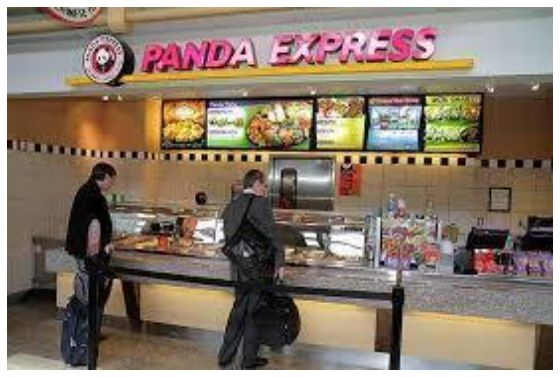- within Corporate/Commercial Law topic(s)
- in United States
- within Corporate/Commercial Law topic(s)
- in United States
- within Corporate/Commercial Law and Finance and Banking topic(s)
- with readers working within the Banking & Credit industries
China's rapid economic development, rising middle class, and evolving consumer preferences have created a fertile environment for international food franchises, particularly those originating from the United States, to expand and flourish. The increasing appetite for US food brands in China is a complex phenomenon driven by economic, cultural, and strategic factors.
- Rapid Urbanization and Rising Income Levels
Over the past few decades, China has experienced unprecedented urbanization, with millions migrating to cities in search of better opportunities. As urban populations grow, so does disposable income. The Chinese middle class is now estimated to number over 300 million people, with a willingness to spend on dining experiences, leisure, and quality food products. This demographic shift creates a substantial market segment eager for diverse and premium food options—many of which are provided by US food franchises.
- Growing Middle-Class Consumption Power
With increased income, Chinese consumers now prioritize convenience, quality, and brand recognition. US food franchises, known for their consistent quality and innovative offerings, are attractive options for middle-class consumers seeking dependable dining experiences. The aspirational aspect of American brands also plays a significant role, as owning or experiencing US brands symbolizes modernity and lifestyle aspirations.
- Changing Tastes and Western Food Preferences
Traditionally, Chinese cuisine dominated the food landscape; however, Western and American food trends are gaining popularity. As younger generations become more globally oriented, they are exposed to Western food through travel, social media, and cultural exchange. This exposure has cultivated a taste for American-style fast food, hamburgers, fried chicken, pizza, and other staples of US food franchises.

- Emergence of a 'Western Food Culture
The influence of American pop culture—movies, television, music, and social media—has fostered familiarity and preference for Western lifestyles. US food brands often symbolize modernity, quality, and convenience among Chinese consumers, especially urban youth and expatriates. This cultural affinity enhances the attractiveness of American franchises.

Business Strategy -Market Entry
Franchising offers a cost-effective, scalable, and adaptable approach for US brands to enter China. It is the only "product" that the US can "sell" to China with no tariffs (if products are locally sourced). It reduces the risks associated with direct ownership by leveraging local expertise in distribution, marketing, and regulation compliance. The franchise model allows the transfer of American culinary concepts while customizing offerings to local tastes.
In China, the franchising model is particularly appealing due to its ability to adapt to regional variations in consumer preferences and regulatory environments. The government has also shown support for franchise development as a means to stimulate economic growth and create employment opportunities. Brands such as Starbucks, McDonald's, and Nike have established strong markets in China,
illustrating the potential for similar success with other American brands.
Localization: Successful US food franchises tend to adapt their menus to local tastes—introducing Chinese ingredients, flavors, and dietary preferences—while maintaining core brand identity. This balance between globalization and localization fosters consumer engagement and loyalty.
Using Delivery Apps: The rise of food delivery apps like Meituan and Eleme has transformed the way Chinese consumers access and experience food brands. US franchises that integrate with digital platforms and adopt innovative marketing strategies can further expand their footprint.

Challenges
Regulatory Environment and Competition
While the Chinese market presents vast opportunities, US franchises face hurdles such as regulatory compliance, cultural adaptation, and competition from both domestic and other international brands. It is not a journey that one should foray into China without adequate support from lawyers, accountants or consultants who can help maneuver the "Chinese red tape". However, the strong demand for Western food and the growing acceptance of American brands continue to incentivize expansion despite these challenges.
COMPLIANCE IS KEY
|
In order to successfully franchise in China, there are a number of compliance items that the franchisor must be aware: Compliance Items |
|
· Business license in China |
· Required |
|
· "Two Stores, One Year" experience |
· Must have 2+ outlets, 1+ year operation before franchising in China |
|
· MOFCOM registration |
· Within 15 days of signing first franchise contract |
|
· Franchise Disclosure Document (FDD) |
· Must be provided 30+ days before contract signing |
|
· Trademark registration with CNIPA |
· Crucial for brand protection |
|
· Chinese-language franchise contract |
· Required for legal enforceability |
|
· Confidentiality/Trade secret clauses |
· Must be included and legally tailored to Chinese law |
|
· Data protection compliance (PIPL) |
· Required if personal data from customers or franchisees is processed |
|
· Pre-contractual franchisee due diligence |
· Helps avoid partner risks |
|
· Review of applicable industry-specific laws |
· Certain industries may have additional restrictions |

✅ Legal Do's for Franchisors Entering China
- Do Register the Franchise Agreement
-
- Chinese law requires franchisors to register their franchise agreements with the Ministry of Commerce (MOFCOM) within 15 days after the first franchise contract is signed in China.
- Do Meet the "Two Stores, One Year" Rule
-
- To franchise legally in China, a franchisor must own and operate at least two company-owned outlets for more than one year (domestically or internationally).
- Do Provide a Disclosure Document
-
- A Franchise Disclosure Document (FDD) must be provided to the prospective franchisee at least 30 days before signing the agreement. This document must follow Chinese regulations and cover specific financial, legal, and operational information.
- Do Ensure Your Trademarks Are Registered in China
-
- Register your trademarks with the China National Intellectual Property Administration (CNIPA) to avoid infringement or bad-faith registrations by others.
- Do Use a Chinese-Language Contract
-
- Chinese courts generally require contracts to be in Chinese (or at least have a Chinese version). Make sure to use a professionally translated and legally vetted version.
- Do Structure Your Business Entity Properly
-
- Decide whether to enter via a Wholly Foreign-Owned Enterprise (WFOE), Joint Venture (JV), or through a Master Franchise Agreement, based on strategic and regulatory considerations.
- Do Protect Your Trade Secrets and Know-How
-
- Include non-disclosure, non-compete, and confidentiality clauses in franchise agreements, and ensure compliance with Chinese laws on trade secrets.
- Do Comply With Data Protection Laws
-
- China's Personal Information Protection Law (PIPL) imposes obligations on companies collecting and processing personal data from Chinese consumers.
❌ Legal Don'ts for Franchisors in China
- Don't Ignore Local Laws and Regulations
-
- Don't assume what works in your home country applies in China. Franchising is regulated differently and non-compliance can result in fines or contract nullification.
- Don't Delay Registration with Authorities
-
- Operating a franchise in China without registering the agreement with MOFCOM is illegal and could lead to serious enforcement actions.
- Don't Use Unregistered Trademarks
-
- China operates on a first-to-file trademark system. Don't enter the market without securing your trademarks — otherwise, someone else may legally own them in China.
- Don't Rely Solely on Verbal Agreements or Informal Partnerships
-
- Chinese law requires formal, written agreements. Verbal agreements have little to no legal standing in commercial disputes.
- Don't Ignore the Importance of Local Legal Counsel
-
- Foreign lawyers cannot practice Chinese law. Always consult with licensed Chinese counsel familiar with franchising.
- Don't Underestimate Cultural and Legal Due Diligence on Franchisees
-
- Perform proper background checks on potential franchisees to avoid disputes or reputational damage.
- Don't Assume IP Protection Is Automatic
-
- Enforcement of IP rights requires proactive registration and sometimes litigation. Don't wait until infringement occurs.
- Don't Transfer Confidential Business Information Without Legal Safeguards
-
- Ensure your contracts restrict how franchisees can use your proprietary knowledge and include enforceable penalties.
Market Entry Modes Comparison
|
Entry Mode |
Pros |
Cons |
|
Master Franchise Agreement |
Lower overhead; rapid expansion with local knowledge |
Less control over brand and operations; depends heavily on master franchisee |
|
Wholly Foreign-Owned Enterprise (WFOE) |
Full control; direct management of operations |
Best way is to start with corporate store and then franchise with flagship outlet |
|
Joint Venture (JV) |
Local knowledge and resources |
Risk of partner conflict; shared control, good if there is a real estate partner |
|
Area Development Agreement |
Structured, phased growth with a local developer |
Moderate control and moderate risk, but with no corporate outlet, maybe challenging to find a developer. |

The content of this article is intended to provide a general guide to the subject matter. Specialist advice should be sought about your specific circumstances.

